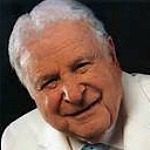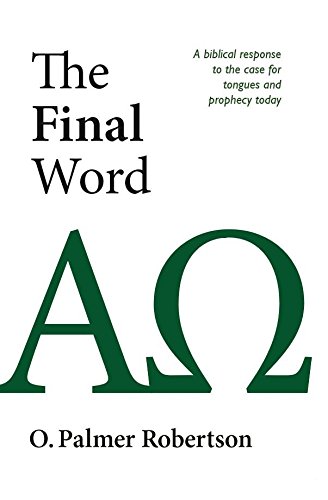Quotes about Tongues
In the first days the Holy Spirit fell upon the believers, and they spoke in tongues that they hadn’t learned, as the Spirit gave them to speak. These signs were appropriate for the time. For it was necessary that the Holy Spirit be signified thus in all tongues, because the gospel of God was going to traverse all tongues throughout the earth. That was the sign that was given, and it passed.
How then, brethren, because he that is baptized in Christ, and believes on Him, does not now speak in the tongues of all nations, are we not to believe that he has received the Holy Ghost? God forbid that our heart should be tempted by this faithlessness… Why is it that no man speaks in the tongues of all nations? Because the Church itself now speaks in the tongues of all nations. Before, the Church was in one nation, where it spoke in the tongues of all. By speaking then in the tongues of all, it signified what was to come to pass; that by growing among the nations, it would speak in the tongues of all.
And as in the time of building the tower [of Babel] the one tongue was divided into many; so then [at Pentecost] the many tongues frequently met in one man, and the same person used to discourse both in the Persian, and the Roman, and the Indian, and many other tongues, the Spirit sounding within him: and the gift was called the gift of tongues because he could all at once speak divers languages.
In the long story of the Church, after the days of the apostles, wherever the phenomenon of glossolalia has appeared it has been looked upon as heresy. Glossolalia mostly has been confined to the nineteenth and twentieth centuries. But wherever and however its appearance, it has never been accepted by the historical churches of Christendom. It has been universally repudiated by these churches as a doctrinal and emotional aberration.
Facts Concerning Modern Glossolalia in The Holy Spirit in Today’s Church, Abingdon, 1973, p. 90-91.
Four truths stand out: 1. Biblical tongues was the supernatural ability to speak in known languages which were not understood by the speaker. It was not babbling or ecstatic speech. 2. Tongues was a special sign for the confirmation of the Word before rebellious and unbelieving Israel until the destruction of Jerusalem and the scattering of the nation which began the Times of the Gentiles. 3. Biblical tongues are no longer spoken. The purpose has been fulfilled and the phenomena has ceased. 4. The Corinthians became fascinated by tongues because their use brought attention to the user. This preoccupation resulted in misuse of the gift as they edified themselves, disregarding the total spiritual life, and failed as witnesses to their city. The Corinthian catastrophe!
The Corinthian Catastrophe, 1974, Published by Kregel Publications, Grand Rapids, MI. p. 48. Used by Permission. All Rights Reserved.
So when we say that these gifts are no longer in existence, we are not limiting God by saying that God cannot do certain things – we are merely acknowledging what God has stated in His own Word. And when we do, we find ourselves conforming to that Word.
The Corinthian Catastrophe, 1974, Published by Kregel Publications, Grand Rapids, MI. p. 53. Used by Permission. All Rights Reserved.
Even those who believe in [modern] tongues acknowledge that unsaved people have tongues experiences. There is nothing supernatural about them. But there is something unique about speaking complete and meaningful sentences and discourses in a knowable language to which one has never been exposed. This is what the real New Testament gift of tongues entailed. Anything short of this, as “private tongues” are, should not be considered the biblical gift of tongues.
When the original Pentecostals studied the text of Scripture, they were convinced that tongues in the Bible were authentic foreign languages. But what happened when it became obvious that their modern version of the “gift” did not consist of real languages? If Scripture had been their highest authority, they would have abandoned the practice altogether—recognizing the fact that what they were doing did not match the biblical precedent. Instead, they radically changed their interpretation of the New Testament, manipulating the text in order to justify and preserve a counterfeit. Thus, the clear teaching of Scripture about languages was twisted in order to redefine tongues as nonsensical gibberish and thereby fit the modern phenomenon.
Strange Fire, Copyright © John MacArthur, 2013, p. 72.
Get this book!
Whereas modern “tongues” is a learned behavior consisting of unintelligible stammering and nonsense syllables, the New Testament gift involved the supernatural ability to speak precisely in a foreign language the speaker had never learned. Though charismatics may hijack biblical terminology to describe their practice, the fact remains that such fabricated behavior has no relation to the biblical gift.
Strange Fire, Copyright © John MacArthur, 2013, p. 137.
Get this book!
It was wrong then, and still is, to selfishly seek any spiritual gift when we’ve been told that spiritual gifts are sovereignly chosen and distributed by the Holy Spirit. It is especially wrong to crave a gift we don’t have out of self-serving or prideful motives.
Strange Fire, Copyright © John MacArthur, 2013, p. 147.
Get this book!
The genuine gift endowed a person with the miraculous ability to speak in unlearned foreign languages for the sake of proclaiming the Word of God and authenticating the gospel message. When used in the church, it had to be translated so other believers could be edified by the message. By contrast, the modern charismatic version consists of nonmiraculous, nonsensical gibberish that cannot be translated. It is a learned behavior that does not correspond to any form of authentic human language. Rather than being a tool to edify the church, contemporary charismatics use the fabrication as a private “prayer language” for the purpose of self-gratification. Though they justify their practice because it makes them feel closer to God, there is no biblical warrant for such unintelligible babble. It is a false spiritual high with no sanctifying value. The fact that modern glossolalia parallels pagan religious rites should serve as a dire warning of the spiritual dangers that can be introduced by this unbiblical practice.
Strange Fire, Copyright © John MacArthur, 2013, p. 154.
Get this book!
All tongues are for the sake of unbelievers [1 Cor. 14:22]. In other words, that gift has no purpose in the church when everyone present is a believer. And once the sign served its purpose to pronounce judgment or cursing on Israel, and the judgment fell, the purpose ceased along with the sign gift. The blessing of that sign was that God would build a new nation of Jews and Gentiles to be His people (Gal. 3:28), to make Israel jealous and someday repent (Rom. 11:11, 12, 25-27). The sign was thus repeated when Gentiles were included in the church (Ac. 10:44-46).
The biblical tongues of the first century were known languages which communicated the wonders of God publicly to unbelievers. They served as an authenticating sign that the gospel message was true. Their function far transcended a personal and devotional use on the part of the speaker.
Charismatic Challenge by John Napier, Providence House Publishers, 2003, p. 27-28. Used by permission. All rights reserved.
In any discussion of tongues, it is important to note that they were not just spiritual gifts. They also were designated as a “sign gift” and part of a cluster of gifts named by Jesus in Mark 16. These sign gifts were given to individuals to authenticate the message of the gospel. The early Christians had no New Testament in the early years following the ascension of Christ. As the gospel went to Jew and Gentile alike, it needed the witness of the signs to undergird its authority, until the written Scriptures established that authority base.
Charismatic Challenge by John Napier, Providence House Publishers, 2003, p. 35. Used by permission. All rights reserved.
Our God is a miracle-working God! He still steps in to heal, to answer prayer, to perform His purposes. No doubt many of the reports are true. However, the miraculous reports coming from mission fields do not attest to the fact that biblical tongues and sign gifts still apply to today.
Charismatic Challenge by John Napier, Providence House Publishers, 2003, p. 68. Used by permission. All rights reserved.
Paul says the church is “built on the foundation of the apostles and the prophets” (Eph. 2:20). I conclude that all we need to know for salvation and sanctification has been given to us through the teaching of the apostles and prophets, and that this teaching is now found in the Scriptures. Now that God has spoken in the last days through His Son (Heb. 1:2), we don’t need further words from Him to explain what Jesus Christ has accomplished in His ministry, death, and resurrection. Instead, we are “to contend for the faith that was delivered to the saints once for all” through the apostles and prophets (Jude 3).
Why I Am a Cessationist, www.thegospelcoalition.org/article/cessationist Used by Permission from the Gospel Coalition. www.thegospelcoalition.org
We often call the gift of tongues a “sign gift.” That is a good description. We know signs are welcomed because they point us to a destination. Yet when we arrive at the desired destination, there longer remains any need for the sign. Unlike the first century, we now know the Bible is complete, Israel is judged (Jer. 5:15; Isa. 28:11; 33:19) and the church is composed of Jew and Gentile. Therefore, the sign (for those purposes) has taken us to our destination and is no longer necessary – tongues have ceased (1 Cor. 13:8). So, any use of tongues spoken of in the Bible (and there are only two beyond Acts – an obscure passage in Mark 16 and the rebuke to the immature Corinthian church), must be interpreted in light of the Acts passages that clearly reveal a known language. Can God still enable a person to speak a previously unknown foreign language? Perhaps, but it is not “tongues” in the biblical sense.
You see, when God’s judgement came upon Israel from the Babylonians, the prophets all said the nation would know that judgment has come because they will hear “a nation whose language you do not know, nor can you understand what they say (Jer. 5:15) and “unintelligible speech which no one comprehends, of a stammering tongue which no one understands” (Isa. 33:19) and “through stammering lips and a foreign tongue (Isa. 28:11). That final verse is quoted by Paul in the famous “tongues chapter” in 1 Corinthians 14. Therefore, in the same way, people speaking foreign languages (Acts 2, 10, 19) was a sign to the Jews that judgment was once again upon the nation.
It is my firm conviction, based on the Scriptures, that the gift of “tongues” from Acts 2 is speaking a previously unknown language. It came to authenticate the apostles before Scripture was written and served as a sign to the Jews that judgment was upon the nation. We see tongues spoken only two other times in Acts when the Gospel reached the concentric spheres mentioned in 1:8 and then it ended in Acts 19 when the Gospel reached the so-called “remotest part of the earth” (cf. Ac. 2:4; 8:17; 10:46 and 19:6).
The Greek word translated “tongues” is glossa. The word translated literally means, “languages” and it would save a lot of confusion if translators of our English Bibles would begin using that word. There is nothing in this passage that suggests undetectable, ecstatic, so-called “angelic” communication. The miracle that took place at Pentecost is that uneducated and often derided Galileans were speaking in different languages, identifiable languages, that they previously did not know. How much clearer can the text be? Verse 6, “Each one of them was hearing them speak in his own language “dialectos” – dialect).” Verse 8, “How is it that we each hear them in our own language to which we were born?” Verse 11, “We hear them in our own tongues speaking of the mighty deeds of God.”
These gifts were not the possession of the primitive Christians as such; nor for that matter of the Apostolic Church or the Apostolic age for themselves; they were distinctively the authentication of the Apostles. They were part of the credentials of the Apostles as the authoritative agents of God in founding the church. Their function thus confined them to distinctively the Apostolic Church, and they necessarily passed away with it. Of this we may make sure on the ground both of principle and fact; that is to say both under the guidance of the New Testament teaching as to their origin and nature, and on the credit of the testimony of later ages as to their cessation.










